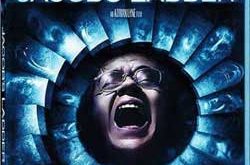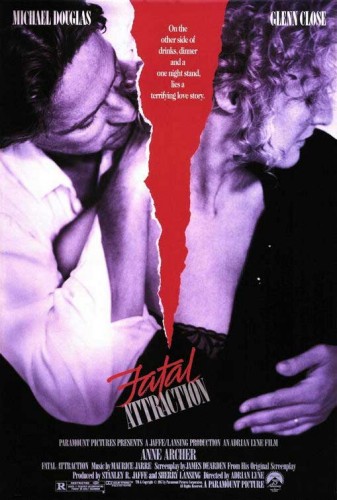 SYNOPSIS:
SYNOPSIS:
“Happily married New York lawyer Dan Callagher has an affair with his colleague Alex, and the two enjoy a love weekend while Dan’s wife and kid are away. But Alex will not let go of him, and she will stop at nothing to have him for herself. Just how far will she go to get what she wants?” (courtesy IMDB)
REVIEW:
Male protagonist Dan (Michael Douglas), for no obvious reason, cheats on his beautiful wife Beth (Ann Archer) within the first ten minutes with a business associate, Alex (Glenn Close). His motives are unclear, apart from the fact that temptation seems to get the better of him. Whether he’s rebelling against middle-class complacency or just a hedonist, Fatal Attraction (1987) is a mainstream American movie that embraced an interesting existentialism that the viewer – and a legion of feminists – were apparently not prepared for at the time of its release.
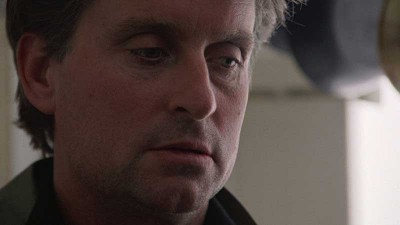 Much of the anger directed at the film was aimed at the ambivalent representation of ‘the other woman’ who becomes an erratic villain when Dan ends their brief affair and returns to the sanctuary of his family. A suicide attempt ensues as does stalking, attempted murder, and an attack on an innocent pet rabbit. And according to some feminists, the abhorrent basis for Alex’s madness resided in her masculine first name, her location of residence (the city’s meat-packing district) and her threatening status as a career woman living outside the conformist maternal paradigm (and made to suffer for it).
Much of the anger directed at the film was aimed at the ambivalent representation of ‘the other woman’ who becomes an erratic villain when Dan ends their brief affair and returns to the sanctuary of his family. A suicide attempt ensues as does stalking, attempted murder, and an attack on an innocent pet rabbit. And according to some feminists, the abhorrent basis for Alex’s madness resided in her masculine first name, her location of residence (the city’s meat-packing district) and her threatening status as a career woman living outside the conformist maternal paradigm (and made to suffer for it).
 Cold reception for what is in reality a simple exploitation film. What many critics failed to realise was that Fatal Attraction offers an obvious lesson in social responsibility, rather than the prodigious psycho-analytic film theory fueling the critics much publicised anger. After all, this stylish nightmare scenario – acknowledging the separate female archetypes and representing the changing modern woman – was first and foremost a horror story.
Cold reception for what is in reality a simple exploitation film. What many critics failed to realise was that Fatal Attraction offers an obvious lesson in social responsibility, rather than the prodigious psycho-analytic film theory fueling the critics much publicised anger. After all, this stylish nightmare scenario – acknowledging the separate female archetypes and representing the changing modern woman – was first and foremost a horror story.
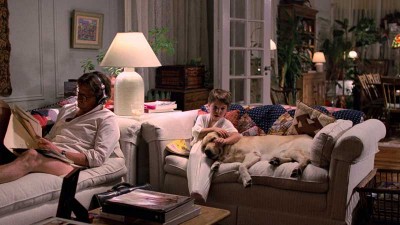 Indeed, the double-standard for the equality-driven militant feminists to overcome was that beneath the ambition, shoulder pads and perm of the eighties career woman, was the possibility that she could be just as psychotic, malevolent and terrifying as her male slasher-movie counterpart. If anything, she had an extra dimension of needs and desires congruent to the contemporary urban alienation and collective neuroses of the modern American metropolis.
Indeed, the double-standard for the equality-driven militant feminists to overcome was that beneath the ambition, shoulder pads and perm of the eighties career woman, was the possibility that she could be just as psychotic, malevolent and terrifying as her male slasher-movie counterpart. If anything, she had an extra dimension of needs and desires congruent to the contemporary urban alienation and collective neuroses of the modern American metropolis.
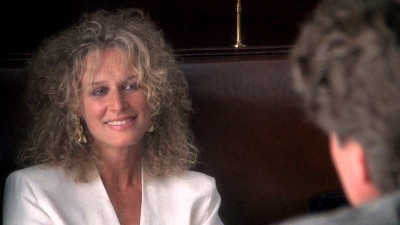 Directed by Adrian Lyne, a soft-p*rn purveyor whose previous erotic escapade, Nine And A Half Weeks (1986), probably did more business under-the-counter at motels than it did at Blockbuster. Mickey Rourke and Kim Bassinger lock themselves away for Nine And A Half Weeks and mix their desires with fresh fruit, while he chain-smokes and gears up for a bunch of imitations like Wild Orchid (1990). Lyne’s Indecent Proposal (1993) has more sins and affairs of the heart – but mainly affairs of the flesh – as Demi Moore sleeps with Robert Redford for a cool million, while hubby Woody Harrelson is left to pick up the pieces. With Lolita (2000), Mario Kassar, Jeremy Irons and Lyne – three of Hollywood’s dirtiest old men – collaborated on adapting the granddaddy of all things sexually transgressive, and in Unfaithful (2002) Diane Lane proves she’s still a hottie, even if she is silly enough to marry Richard Gere and then, out of pure boredom, commit adultery with a slimy French door-to-door salesman.
Directed by Adrian Lyne, a soft-p*rn purveyor whose previous erotic escapade, Nine And A Half Weeks (1986), probably did more business under-the-counter at motels than it did at Blockbuster. Mickey Rourke and Kim Bassinger lock themselves away for Nine And A Half Weeks and mix their desires with fresh fruit, while he chain-smokes and gears up for a bunch of imitations like Wild Orchid (1990). Lyne’s Indecent Proposal (1993) has more sins and affairs of the heart – but mainly affairs of the flesh – as Demi Moore sleeps with Robert Redford for a cool million, while hubby Woody Harrelson is left to pick up the pieces. With Lolita (2000), Mario Kassar, Jeremy Irons and Lyne – three of Hollywood’s dirtiest old men – collaborated on adapting the granddaddy of all things sexually transgressive, and in Unfaithful (2002) Diane Lane proves she’s still a hottie, even if she is silly enough to marry Richard Gere and then, out of pure boredom, commit adultery with a slimy French door-to-door salesman.
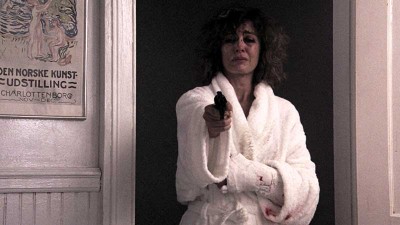 The problems I had with Fatal Attraction were threefold: I couldn’t feel much compassion for the main character, I couldn’t believe in the secondary character, and I found much of the action easy to foresee.
The problems I had with Fatal Attraction were threefold: I couldn’t feel much compassion for the main character, I couldn’t believe in the secondary character, and I found much of the action easy to foresee.
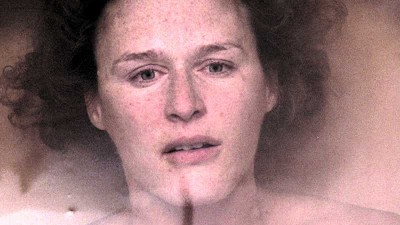 First off, do I really feel sorry for a guy who appears to have it made in life and then chooses to throw it all away for what is essentially a one-night stand? If this were an unanticipated moment of passion, yeah, maybe I’d feel a little more pity for the guy but, instead, we see Dan plan out his affair with Alex well in advance of the actual event. They discuss it over dinner and premeditate the act. What’s worse, Dan knows virtually nothing about this woman. What in the world was he thinking? Is it just a lark for him? That’s what it certainly looks like, which doesn’t go a long way toward persuading me that it’s normal or right.
First off, do I really feel sorry for a guy who appears to have it made in life and then chooses to throw it all away for what is essentially a one-night stand? If this were an unanticipated moment of passion, yeah, maybe I’d feel a little more pity for the guy but, instead, we see Dan plan out his affair with Alex well in advance of the actual event. They discuss it over dinner and premeditate the act. What’s worse, Dan knows virtually nothing about this woman. What in the world was he thinking? Is it just a lark for him? That’s what it certainly looks like, which doesn’t go a long way toward persuading me that it’s normal or right.
 Secondly, there’s Alex. As far as we can tell from the movie, she has always been a well-adjusted lady, an intelligent, well-respected book editor. So why does she suddenly become unhinged? Does she really fall so madly in love with Dan after just one weekend that she won’t give him up for anyone or anything? The movie never explains why Alex becomes so deranged so quickly, why she flips out so unexpectedly after a presumed lifetime of stability.
Secondly, there’s Alex. As far as we can tell from the movie, she has always been a well-adjusted lady, an intelligent, well-respected book editor. So why does she suddenly become unhinged? Does she really fall so madly in love with Dan after just one weekend that she won’t give him up for anyone or anything? The movie never explains why Alex becomes so deranged so quickly, why she flips out so unexpectedly after a presumed lifetime of stability.
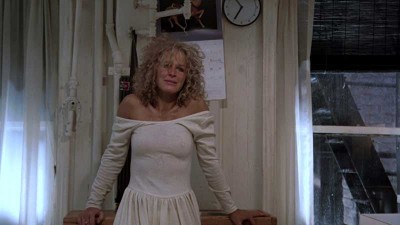 Finally, even though the movie succeeds in building tension, there really isn’t much in the story that one cannot anticipate. The film telegraphs most of its action a mile in advance. There’s even a scene involving the family rabbit that seems to have been inspired by What Ever Happened To Baby Jane? (1962).
Finally, even though the movie succeeds in building tension, there really isn’t much in the story that one cannot anticipate. The film telegraphs most of its action a mile in advance. There’s even a scene involving the family rabbit that seems to have been inspired by What Ever Happened To Baby Jane? (1962).
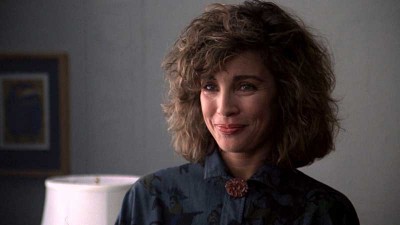 Nevertheless, despite several weaknesses in Fatal Attraction, it manages to do its job and keep one intrigued, especially if one hasn’t seen it before. If you don’t exactly enjoy it, at least you won’t want to punish me for discussing it, and I know I can count on having your company again next week when I resurrect another forgotten fragment of cinema history for…Horror News! Toodles!
Nevertheless, despite several weaknesses in Fatal Attraction, it manages to do its job and keep one intrigued, especially if one hasn’t seen it before. If you don’t exactly enjoy it, at least you won’t want to punish me for discussing it, and I know I can count on having your company again next week when I resurrect another forgotten fragment of cinema history for…Horror News! Toodles!
Fatal Attraction (1987)
 Horror News | HNN Official Site | Horror Movies,Trailers, Reviews
Horror News | HNN Official Site | Horror Movies,Trailers, Reviews
